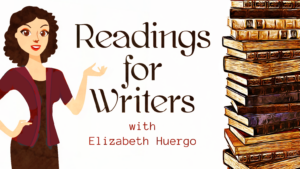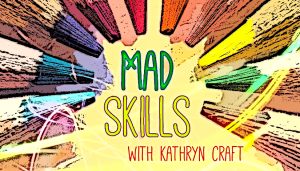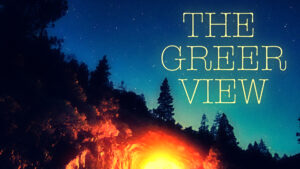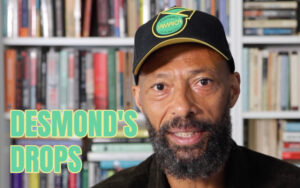Inspirations
No prophet is welcome in his own country according to the New Testament. It isn’t so much what they foresee. It’s that their predictions are based on their ability to observe the foibles, biases, and bad practices of the present. Prophets foresee the future much like climate scientists who analyze past and present in order to predict the death of coral reefs and the steady rise of sea levels. We don’t want to hear anything critical about ourselves, and we don’t like inscrutable killjoys, prophets who warn us to temper our appetites, to nurture good habits, and to think of others.
One of my favorite secular prophets, Neil Postman, was a media and social critic at NYU for nearly 40 years. I was watching Jordan Klepper and Ronnie Chieng’s interview of Kyle Chayka, author of Filterworld: How Algorithms Flattened Culture, on The Daily Show when I thought of Postman. The premise of Postman’s book, Amusing Ourselves to Death: Public Discourse in the Age of Show Business, published in 1985, is that electronic media is homogenizing culture.
I have not read Filterworld yet. According to NPR, Chayka “argues that all this machine-guided curation [created by algorithms] has made us docile consumers and flattened our likes and tastes.” Chayka adds that “the algorithms pressure artists and other content creators to shape their work in ways that fit the feeds.” Algorithms are narrowing the scope of our world and spoon-feeding us our own biases. (In my mind’s eye I see Narcissus, enraptured by his own image, tipping his weight too far over the bank, and falling to his death. Or is the proper analogy to Midas who, in one of many versions of his story, dies of starvation induced by avarice, the food that touches his lips turning to gold?)
The despairing, enraged lamentations of the prophet Jeremiah eventually turned the crowd against him. People just did not want to hear another jeremiad, so they stoned him to death. “Shuffle Off to Bethlehem,” the eighth chapter of Postman’s Amusing Ourselves to Death, has the pacing, the crescendo of a jeremiad, one we no longer have the option of dismissing since it has become our daily experience. Most of the coral is dead now and no longer the color of coral. The city of Miami has installed water pumps along certain streets that flood on a regular basis.
In 1985, when we were all less enraptured, Postman observed that a televangelist would be loath to base a sermon on Christ’s pointed remark to his disciples about materialism and salvation; specifically, that “it is easier for a camel to go through the eye of a needle, than for a rich man to enter into the kingdom of God” (KJ Matthew 19:23-26). Postman quotes the executive director of the National Religious Broadcasters Association, who admits “‘You can get your share of the audience only by offering people something they want.’” The audience is told the moral lesson they want to hear because the televangelist is no longer a shepherd who loves his flock and leads them to safety. Love has shifted and become lucre, which is what the shepherd will see more of if he pleases his […]
Read MoreIt’s hard to believe that Writer Unboxed has been online for over 18 years now, but it has. We were barely into our second year when we received a nod from Writer’s Digest in their June 2007 issue for being one of the best 101 websites for writers. Just this month, we received our 18th such nod from Writer’s Digest. The site has evolved tremendously since 2006, when fellow co-founder Kathleen Bolton and I blogged most days alone, reaching far and wide to interview agents, editors, and authors–eager to learn, to share, and to build a community.
Today, Writer Unboxed is a true group effort, with over 60 respected voices offering empowering and often inspiring essays on the craft and business of fiction. A big hat tip to the entire team, with special thanks to 9 foundational contributors: assistant editors Kim Bullock and Vaughn Roycroft, and monthly contributors David Corbett, Kathryn Craft, Dave King, Donald Maass, Greer Macallister, Ray Rhamey, and Densie Webb.
Beyond the contributions of our team are each of your voices — the WU Community — which also received a deserved shout-out in this year’s WD award recap:
“For nearly two decades, Writer Unboxed has sought to publish empowering and positive ideas about the craft and business of fiction from more than 50 60 contributors. Known for its robust and supportive comment section, (Writer Unboxed) offers insights from editors, bestselling and up-and-coming authors, industry professional, and more.”
Congratulations to everyone for being a bright light here and on a job very well done. You’ve not only touched leagues of writers who turn to you for guidance, for fuel, and for community, you’ve inspired me to write on as well. Thank you for that.
To the next page, friends!
~ Therese
p.s. Click to view the full post for photos!
p.p.s. You can purchase a signed copy of the only Writer Unboxed book, Author in Progress, at one of our favorite independent book stores: WICKED GOOD BOOKS in Salem, MA. Click HERE.
Read Morephoto adapted / Horia Varlan
I am drawn to the things that people won’t talk about. That may be obvious, if you know that my first two novels were about body image and suicide. When was the last time you asked a new mom about her poochy, post-baby abdomen, or what it was like for your neighbor to find her son dead by his own hand? Body-altering, life-changing events happen to us every day that most people just won’t talk about, even though staying mum feeds a churning magma of shame.
Secrets and lies are everywhere in contemporary fiction, and will often drive the entire novel, as David Corbett covered well in a 2022 post. For the purposes of this post, if the protagonist participated in “the thing that shall not be mentioned,” it’s probably more like a shameful secret that someone might lie to cover up.
What I want to look at today is a subtler contribution to characterization—unquestioned taboos passed down through your character’s family or tribe of origin.
Our understanding of what behavior is acceptable in society can come from what we’re told—“No sweetie, we don’t bite our friends”—or, sometimes more powerfully, through what’s never spoken about. If you’d like to try this way of enhancing characterization, look for a taboo relevant to your premise that is specific to the character’s family, as in the examples below. Because it won’t ever be talked about, the character may not even know why it’s taboo; they’ve simply accepted it as forbidden. These silent influences can add shading to a character, impact goal achievement, or dam/damn their inner arc of change.
Love. A man approaching a dock in a motor boat is met by a four year old waving his arms. “Uncle Jim, Uncle Jim, I love you!” The man climbs onto the dock, says hello to the child, then marches up to the boy’s mother and asks why her son would say that to him. She says, “Um, because he loves you? Wild guess.” The uncle harrumphs. “Well. We don’t do that.” What if using the word love causes suspicion in a family member instead of pleasure?
Money. Even though your character’s father was a vice-president of a major company, she had no idea what he earned except that according to her mother, the money didn’t stretch far with five children. This might leave the character clueless about budgeting, saving, and investing in ways that could impact her goal achievement. If her best friend hinted at “how much more money” she was making at her new job, your protagonist might feel prompted to ask for the details her friend longed to spill, but, believing it was crass to talk about money, have to force those words through the involuntary constriction in her throat. What if making money made her feel uncomfortable rather than successful?
Age. At dinner, a girl once asked her favorite aunt how old she was. Her mother cut her a stern look. A long, tense pause ensues. Her aunt finally says, “Old enough to know better.” How might this impact the girl? Would she think that aging is shameful and to […]
Read MoreIt’s always a buzz to go into a bookshop in a city you haven’t been in for a while and see copies of your book still there, prominently displayed, months after publication. The perfect occasion, you think, to sign a few and have that attractive Signed Copy sticker on the front! But what if you haven’t organised a book signing in that particular shop? Is it okay to go in and ask to sign them?
In my experience, yes—it is always worthwhile. Booksellers like to have the Signed Copy sticker on the front too, an extra something to attract the customer’s eye and maybe nudge them over the line to purchase. And if you time your impromptu visit well—e.g. when it’s not too busy in the store—it’s been my experience that you can have great chats with booksellers and gain valuable information about how their customers are responding to the book in their particular area, what they themselves think are its strong points, etc.
If you handle it well—not as a hard sell but as an opportunity to make a connection and express your appreciation for the work they do selling your book—then people tend to respond very positively in my experience. It makes the possibility of handselling much more likely, as you and your book will be much more memorable to an individual bookseller moving forward. And that may also mean they will order more copies, if they run out.
It can of course feel a bit nerve-wracking to go in cold, especially in the bigger bookshops, and ask if you can sign copies of your book, but think about it as a micro form of market research as well as an opportunity to attract a bit more attention to your book and to yourself as an author. If you do this with several different bookshops with different clienteles within a certain designated area, in what is basically an impromptu book-signing tour, then you will gain an understanding of what works in one place as against another. Chatting with each bookseller, comparing how different shops have positioned the book, can also give you ideas and hooks for social media posts and reels.
In fact I would go so far as to say I have had more success with impromptu book signing visits than those which have been organised ahead of time and have required the bookseller to position you at a table and wait for customers to come to you. And it makes it less anxious for me as an author, too—nothing more humiliating than sitting at a signing table for ages, pretending to look nonchalant, while hoping someone might stop by the table with a book to sign!
Just a few quick tips:
Read More
photo adapted / Horia Varlan
The email assault continues without rest, its dire warnings and in-your-face messaging delivered in yellow highlighter, handwritten red ink, and ALL CAPS WITH MULTIPLE EXCLAMATION POINTS!!! [Yawn—is it November yet?] I’ve never been more grateful for the phone setting that rejects calls from people who aren’t in my contacts.
But seriously—is a novelist’s life ever truly free of political content? Listen in on some memorable moments I’ve plucked from the last twenty years of my life.
Heard at a recent book club meeting:
When putting forth as our next book club pick Emily St. John Mandel’s Sea of Tranquility, I shared from the book description that one of the point-of-view characters lives on “the second moon colony.”
“No.”
I was surprised to be cut off so soon. Typically we are an open-minded group, willing to read books that fall outside our usual fare. Thinking this was simply a call for further convincing, I shared the accolades: over 26,000 reviews that averaged 4.3 stars, starred trade reviews, “Best Book of the Year” nods from sixteen reputable sources, President Obama’s reading list, plenty to chew on and discuss…
“That scares me too much,” my neighbor said. “I can’t think about that kind of future.”
Her admission sent a thrum through a room gone suddenly quiet.
Instead, my neighbor steered us toward the other novel I’d put forth, Z, A Novel of Zelda Fitzgerald, written by our WU friend Therese Anne Fowler. I suppose my neighbor’s thinking was that the conflict in a historical—which in this case included the financial and psychological struggles of a life in publishing, a woman’s fight to be heard among the men who marginalize her, and the deleterious effects of drinking to excess on health, relationships, and a career—might produce less anxiety, since it had already been resolved.
Hmm.
Heard at a party, the summer of 2016:
“I refuse to talk about anything political.”
That will be a trick, I thought. But I knew as well as the speaker did that her politics would not be particularly popular in our grouping, so I asked, “What would you like to talk about then?”
She said, “I don’t know, the arts.”
Oh boy did that poke a very political bruise for me, and anyone else present whose underpaid work to enhance and preserve our country’s culture—our very humanity—had depended on grants from the National Foundation on the Arts and Humanities. With everyone watching their steps, the topic quickly petered out.
“Okay then, pets!”
Talking about fur babies might sound like a subject insulated from political intrigue, but the one and only time I had to go to court to defend my rights was after a neighbor, ignoring leash laws, allowed her German shepherd to run into the street, pick up my cockapoo by the neck, and shake it until he tore his skin. My peace-loving Max could still walk, thank goodness, but he was so afraid to do so I had to carry him up and down hills for more than a half-mile to get home, even as my own arms were shaking. Then […]
Read MoreFor many years I’ve been up on a soapbox about how well-worn writing rules (“Show, don’t tell!” “Write every day!”) don’t work for everyone. But only recently did I realize I’ve been doing myself a bit of a disservice rejecting well-worn rules in my personal life.
Here’s an example. Like many of us whose formative years overlapped with the Aerobics Age of the 1980s, I’ve had at least one ear tuned to diet advice for several decades. And as with writing, there are countless rules that some people present as “musts” that don’t work for everyone. (“Never shop on an empty stomach!” “Always eat breakfast!”)
But recently, a conversation with a doctor convinced me to attempt to change my eating habits. Even while rolling my eyes internally at hearing so much advice I’d heard before about healthy eating, I did decide that it was worth trying out some of the guidelines from that conversation, even if I was skeptical about how effective they might be. After all, I’d heard them so many times before.
So earlier today, instead of snacking on the go (my default mode), I had a meal. I cooked myself a hot lunch and ate it from a salad plate at my kitchen counter. I drank a glass of water. I focused on eating and nothing else, and chewed slowly, savoring every bite. Afterward, I felt full and satisfied.
And then I thought, Dammit. I think it worked. How annoying is that!?
I’d heard the advice many times. But had I ever tried it? Had I dismissed it out of hand, telling myself That’s too simple to work or That might work for other people but it won’t work for me without considering giving it a shot?
Look, tomorrow I might make myself a hot lunch that I sit and eat from a salad plate on my counter and then look up afterward and say I’m still starving, this is ridiculous, I was right all along.
But today it feels good. Today I didn’t just dismiss an idea because it wasn’t a new idea. And I like that.
Like me, you might be disinclined to follow rules you’ve heard before. I’m not going to just write what I know, I’m going to tell instead of show if the story calls for telling, and I’m absolutely not going to write every day. But I can say all those things because I’ve tried all those things.
Any particular well-worn writing rule may not work for you, it’s true. But before you dismiss it out of hand, have you given it a try? Because in all these years of talking about how no rule works for everyone, I think I forgot the flip side: every rule works for someone.
Q: Does some, all or none of the best-known writing advice work for you? Which rules have you tried and rejected, or tried and embraced?
Read More
As some of you may already know, in addition to being a highly sought-after shirtless model for romance novel covers, I am also a longtime professional musician, having earned my first money for playing drums at the ripe old age of 14. In fact, music was my fulltime profession until my late 30s. And I didn’t start seriously writing fiction (inasmuch as anything I write could be considered “serious”) until I turned 40. (So you might say that as a writer, I was a 40-year-old virgin. But I digress…)
Coming into a new-to-me art form with a lengthy background in another, I’ve been repeatedly struck by how many parallels I’ve encountered between the two creative paths. It has also been interesting to note the very different experience of learning one art form as a child, and learning another as an adult (inasmuch as a person like me could ever be considered an “adult”).
But I’ll leave the exploration of the whole young-versus-old-artist rabbit hole for some other day. Today, I want to explore five similarities I’ve found in pursuing two art forms – writing and music – at the professional level. I’ll start with the one I think is most important:
1. It’s a business.
Thus far I’ve been calling them art forms, but when you start actively seeking a paying audience for your work – whether written or musical – you quickly become aware that you are dealing with a business, which brings with it numerous rules, obstacles and rites of passage, many of which are not clearly stated or even openly acknowledged. Yeah, it’s fun like that. Trust me: You’re gonna want to wear a helmet.
In each case, because it’s a business, many decisions that will affect your success are A) based on money, and B) out of your hands.
As a musician, this could come down to who is willing to hire you, or to pay to see you perform, or to publish your music (an area that used to be where the money was in songwriting), or to finance your recording and/or tour, or to buy your recordings. Bottom line: It’s about who will spend their money on this thing you chose to do. As the artist, all you can do is make whatever product or service you’re offering as appealing – and as competitive in terms of financial value – as possible.
Writers are in a similar position. Whether you’re pursuing the traditional publishing route, or self-publishing, or trying to get a piece of your dramatic work produced either on stage or screen, somebody else has to decide that what you’re doing (or promising to do) is worth their money.
In both cases, as an artist, you are free to express yourself in any way you see fit. But as an artist who wants to be paid for that art, it quickly becomes obvious that some pathways lead a bit more directly to potential revenue generation than others. Hence my next observation:
2. Genre matters.
For example, a thrilling 70,000-word whodunit with a strong, confident protagonist stands a better chance of selling some copies than a 600-page second-person diatribe exploring the modernist paradigm of discourse that forces the reader to choose between subcapitalist situationism and the dialectic paradigm of consensus. (Incidentally, I have no […]
Read Morephoto adapted / Horia Varlan
As a novel approaches its final lines, it’s just so tempting—for experienced novelists and rookies alike—to explain its meaning to the reader.
Intentions for doing so are no doubt good. Just in case the reader lost track of all the facets to your plot, you want to offer a review. Just in case they failed to amass the accumulating meaning of the protagonist’s inner journey, you want to hammer home the point to it all so they don’t think they wasted their time by reading it. Unfortunately, instead of just in case, your efforts can come across as, Because I fear you may not be able to follow my brilliant plot, I’m now going to insult what minimal intelligence you might possess by subverting the very nature of story by explaining what just happened.
The reader has a right to her own interpretation. Like all art forms, literature is interactive. Think of a sculpture: after it’s built, and then wrested from its creator’s hands, it is meant to be interpreted by the reader.
In fact, by the time your story reaches readers, your interpretation of it is no longer of prime importance.
Each of your readers will come to your story with their own emotional, psychological, spiritual, and genetic makeup. They’ll have their own formative experiences, from which they’ve drawn their own conclusions. And all of that will feed a worldview that may not align with yours.
But that doesn’t mean you should exclude those people from finding meaning in your book. Their meaning.
If you’ve never belonged to a book club—or heard your own novel discussed among book club members—you may not have experienced firsthand the way readers hold dear their individual impressions of a work. Some who have read my debut The Art of Falling claim greater insight into the eating disorders of loved ones, even though my intention was to create a protagonist with body image issues, not anorexia. Some dislike the director of the dance company who hired my protagonist, saying that he used her; others perceived that despite his love for her, he had a clearly stated career mission to prioritize that was important to him, and my protagonist’s problem was in danger of imploding it.
Who am I to explain the story? Art is subjective; every defensible opinion is valid. I love listening to people hash these issues through.
Because I don’t think any of us would want to send readers the message that their interpretation was wrong on purpose, we writers need to figure out how to look for the sometimes-subtle ways we try to explain our stories. As a guide, consider this quote from Jerome Stern, in Making Shapely Fiction:
The closer and closer you get to the ending the more weight each word has, so that by the time you get to the last several words each carries an enormous meaning. A single gesture or image at the end can outweigh all that has gone before.
With that in mind, here are some actions you can take to ensure your story resolves organically.
Rethink phrases like “she realized” and “she understood”
This can be especially important […]
Read MoreRecently, I stumbled across the news that one of my MFA classmates is on tour promoting her new book. This isn’t, in itself, remarkable–while there may be a handful of people who get a Masters in Creative Writing solely to improve their craft, I’m pretty sure most of us do it to increase our chances of publishing at least one book-length work of fiction. I’m not in touch with this particular author, but she was the first of us to get published, way back in 2002, and the news that she has a new book out put a smile on my face.
But then my very next thought was: Wait. Is she more successful than me?
Now, this is a ridiculous question. The answer doesn’t matter. There is literally no one (including her, I would bet a million dollars) who is comparing our two careers to figure out who’s “more successful.” Let’s call her author A.
Author B, who we also took MFA classes with, had her first novel published in 2003. Several of her books have been New York Times bestsellers. I adore her work. And when I started down this–again, ridiculous–chain of thoughts about success and comparison, my next thought was, Wait. It’s definitely Author B. Author B is the most successful of the three of us.
Backing away from the specific comparisons, this is what my churning, competitive brain arrived at: each of us has succeeded in different ways. Author A has the most awards, the most literary reputation; Author B has sold the most total copies of her books, hit the bestseller list the most times. With my eighth published book coming out in August and one more under contract to follow soon after, I have more published books than either Author A or Author B–but without selling hundreds of thousands of copies or being awarded a single literary honor.
It’s a quote often cited when talking about how to manage your career as an author, but it’s worth saying one more time here: Comparison is the thief of joy.
You can compare yourself to any author you want; compare your awards and theirs, your books and theirs, your life and theirs. It’s hard to resist. But such comparisons won’t make you happy, and they aren’t the road to defining success for yourself.
Because your own definition of success is the only one that matters.
Over the years I’ve been lucky enough to have what I consider many successes. I’ve also had just as many reversals. My first novel, published under a different name, won me a big advance but such low sales I don’t expect to ever be published under that name again. (Pivot!) My debut hit the USA Today bestseller list but my second book didn’t. My first, third and fourth books have all been optioned for TV or movies but only one of the three has renewed the option so it’s still current, while the other two expired without further development. Good luck sometimes looks like bad and vice versa. There is no final “I’ve made it!” in publishing.
So I have to define success for myself, and I have. It doesn’t matter what other authors are doing, whether they were in my MFA program or not. The authors I’ve […]
Read MoreIn a public-school decades ago, I learned early American History from someone who described the arrival of English pilgrims on this continent as a direct fulfillment of God’s will. The Almighty Himself, this teacher told the class, wanted these Europeans to inhabit this second Eden. As for the handful of murderous Calibans who managed to scale the walls of Paradise, the pilgrims could not help bumping into them, which is why we have Thanksgiving.
Obviously, the “c” word was never spoken in this classroom. The pilgrims’ motives, like the motives of the pioneers who later pushed westward across an “empty” terrain, could never be questioned. Their actions could never be referred to as conquest or the will to power, only the godly, progressive unfolding of civilization. The story this teacher told of the Boston Tea Party of 1773 was similarly plumb, square, and solid. The Sons of Liberty boarded ships in Boston Harbor and tossed crates of tea into the sea because “no taxation without representation” was a noble belief for which these patriots were willing to kill and die.
What I remember most about that long-ago classroom is the blank weight of questions I could not form much less express. How did the Sons of Liberty rationalize political violence? Why was their destruction of private property laudable? The ships they boarded, after all, were built in America and owned by Americans. Did the ends justify the means?
There were, too, comparisons across centuries that remained unspoken. For example, how were the Sons of Liberty in 1773 different from the rioters who spilled into the streets after the assassination of Martin Luther King in 1968; or the members of the Clamshell Alliance who demonstrated against the production of nuclear weapons in 1976?
The ships boarded by the Sons of Liberty were trading with the British East India Company. What were the British doing in India, anyway? Was it anything like what the US was doing in its “backyard” (e.g., Cuba, 1961; Brazil, 1964; Bolivia, 1971; Chile, 1973; Argentina, 1976; etc.)? Why, on that December night of the raid, did some members of the Sons of Liberty dress as Indigenous Americans?
The 1773 event was invoked in 2009, when a group of right-wing Republicans formed the Tea Party, taking on the famous moniker without considering who they were emulating or what they were tacitly evoking. Like their earlier comrades, the Tea Party Republicans didn’t like taxes. That was clear, though I remember wanting desperately to interrupt the television pundits and ask them to ask these reactionaries how they felt about level sidewalks and working streetlamps; well-paved roads and well-timed traffic lights; dog parks and snowplows; electrical grids and clean water?
“What will happen next?” the pundits asked one another after each commercial break. Only the future mattered. My mind drifted back to Orwell’s 1984 and the “memory hole,” the chute into which poor Winston tosses bits of reported information, the first draft of written history. Down the chute and into the incinerator went the facts, along with every possibility of understanding the present moment.
People remember Santayana for his aphorism, “[t]hose who cannot remember the past are condemned to repeat it,” which appears in The Life of Reason, a very accessible philosophical tome. The sort of memory […]
Read MoreTherese here to officially welcome our newest contributor to Writer Unboxed, multi-published author Gwendolyn Womack! More about Gwen from her bio:
Gwendolyn Womack is the award-winning LA Times & USA Today bestselling author of The Fortune Teller, The Memory Painter, and The Time Collector. Her books have been described as cross-genre metaphysical thrillers, and her YA debut, The Premonitions Club, is coming out in 2025.
Gwen was a screenwriter for years before becoming a novelist and has an MFA in Directing Theatre & Film from CalArts. Her main hobby is photographing kaleidoscopes, and she often posts pictures of them on social media. She has taught writing workshops at conferences and for writing groups, both in person and online, and offers one-on-one consulting as well as editorial feedback.
Gwen’s well-storied background is sure to lead to some fascinating posts for us here at WU–and today’s post is the first proof. Enjoy. And welcome, Gwen! It’s great to have you with us.
Writing is an incredibly intuitive and often subconscious process. So the more we writers can train ourselves to build intuitive muscle, the more easily we can dive into characters’ psyches, figure out the narrative of the story, and cull our imaginations to answer that age-old question: What happens next?
While writing my second novel, a story revolving around an ancient Tarot deck, I began to think about how writing and intuition are intimately linked. Eventually, I created an Intuitive Writing workshop that I have led over the years, helping writers to tap into their intuition more quickly during their creative process.
Before I outline some concrete tips for tuning into your subconscious while you work, I’d like to talk about brainwaves. Because understanding brainwaves is the key to understanding intuition and intuitive writing.
First let’s breakdown what a brainwave is. Every thought, emotion, and behavior we have is generated by the neurons in our brains. All of those neurons talking to each other create electrical pulses or brainwaves. Those waves can either oscillate fast, slow, or somewhere in between.
There are four main brainwaves and each one has a different rate of oscillation. Think of them as the four strings on a violin. Which string is played determines state of mind.
The first string: Beta is the most active brainwave during the day. It’s the listening, thinking, problem-solving wave. When we go to work, we’re in Beta.
But what happens when you’re writing and you can’t quite capture what you need on the page? Perhaps you’re wrestling with a scene, lacking inspiration, or in some other way stuck? You probably need to step away from the keyboard. This is because deep, creative work requires out-of-the-box thinking and Beta is very much in-the-box thinking.
The second string: Alpha is a slower brainwave that creates a calmer, more relaxed state, and a bridge between the conscious and subconscious. Researchers at the Queen Mary University of London have found that “higher levels of Alpha brainwaves enable people to come up with ideas,” and scientists at the University of North Carolina showed that Alpha brainwaves not only boost creative thought but decrease depression.
So the next time you’re stuck at the keyboard, think of changing the strings. How can you get […]
Read More
I drink a lot of tea. Too much, some might say. (Side note: Those people are not my friends.) The tea habit started in college as a daily cup, and over the years morphed into a full pot consumed over several hours as I write or do chores. Tea has become the background noise to my daily life.
This was fine when the tea was a grocery store box of generic pulverized dust. But as I’ve gotten both older and better paid, my tastes have changed and morphed and changed again, finally settling lo these many years later on dragon pearl jasmine as my beverage of choice. It’s a lovely, sophisticated brew, each scoop scented with multiple pounds of jasmine blossoms, then hand rolled into tiny balls. With a price to match, natch. It’s meant to be slowly savored, sip by sip.
Instead, I’ve been mindlessly guzzling it by the gallon.
And then, for Christmas, my husband gave me a fancy kettle. Not the squat, functional one I’ve had for years that can boil a gallon of water with the flick of a finger and pour it just as fast. No, this new kettle is a work of art, with a heat control that matches water temperature to the type of tea I’m making, a hold button to keep the temperature of the water constant, and a long, thin, elegantly sculpted spout … that pours at a glacial pace. And since the new kettle is half the size of the old one, it doesn’t pour much, either.
The first time I used it, I literally accidentally dumped a third of the scalding water out in my quest to make it pour faster. The second morning wasn’t much better – ok, it was worse, because I was both impatient AND caffeine deprived without my normal large pot of tea. By the third morning I was brainstorming ways to return it without hurting my husband’s feelings.
But then on the fourth day, as I was heading to the kitchen I passed my grandma’s china. Old and fragile, requiring hand-washing, I rarely use it. But on a whim I grabbed one of her tiny rose patterned cups and a matching saucer and took it with me.
Waiting for the water to boil that morning felt different, as if my grandmother was keeping me company. Instead of eyeing the kettle angrily and trying to make it work faster using the heat of my glare, I looked around. I saw the way the sunlight caressed the edges of the china cup, turning it translucent. The way an almost invisible pattern of flowers was pressed into the roll of paper towels next to the sink, a roll I’d purchased but never really looked at. I inhaled the intoxicating, delicate scent of jasmine rising from the teapot waiting to be filled.
How had I not seen these details for so many mornings? They’d been there all along. The only thing that had changed was me. Forced to slow down, the invisible had become visible to me.
As writers, we spend so much time in our heads, creating imaginary worlds and populating them with imaginary people, that sometimes we […]
Read MoreTherese here. Please join me in welcoming Kristin South as an official WU contributor! Kristin was our most recent UnConference scholarship winner and quickly became woven into the fabric of our last in-person event, making meaningful connections with others and sharing her experience with clarity and generosity. She contributed a guest post here last year and we knew right away she’d make a wonderful addition to WU. More from her bio:
Kristin Hacken South writes whatever comes thrumming through the void, which to date has included a few short stories, lots of academic papers, two middle grade detective stories, one set in Belgium and the other in Egypt (two places where she has traveled for work more than any others), and two adult novels, one set in Utah and the other in Connecticut (the two states where she has lived more years than any others). She lives in Atlanta and gleefully enjoys every snow-free winter day.
You can learn more about Kristin and her very cool day job on her website.
Welcome, Kristin! We’re so glad to have you with us — officially!
We all know the cliché: A good book transports the reader to a different time and place. I suggest this cliché has staying power because it’s true, but not in the way we usually think.
So many stories that I read as a child were set in the misty pan-Celtic landscape of Scotland, England, Wales, and Ireland that it felt like I’d been there. I pored over Arthurian legend and gulped down Susan Cooper’s The Dark is Rising series and The Chronicles of Prydain. I loved the stern texture of ancient magic and the serene beauty these places seemed to exude. Naturally, when I was offered the chance to visit some historical sites of ancient Irish kingship last summer, I snatched it.
Low clouds hushed the countryside as I walked across fields of closely cropped grass to the burial mounds and Bronze Age earthworks of Tara. A constant drizzling rain soaked my shoes, but the weather only enhanced the experience. I knew that misery accompanies myth.
My tour guide and traveling companions were all archaeologists, like me. Unlike me, however, none of them had a side hustle as a fiction writer.
It showed.
It showed in the way our guide stuck to careful enumeration of fact with qualifiers aplenty. He didn’t mention the fort that, it is said, collapsed under the weight of a false judgment carried out by the High King Lugaid mac Con. No one pointed out the exact spot where the tragic, doomed lovers Gráinne and Diarmuid first locked eyes during Gráinne’s wedding feast to another. Where was the humor and ill-fated hubris? The imperious beauty laced with tragedy? If nothing else, where were the leprechauns? I caught nary a whiff of smoke from the Easter Fire that St. Patrick was said to have lit nearby.
Most shocking of all, the archaeologists with me laughed as our guide mentioned an earlier attempt to excavate the Ark of the Covenant from this site. It was almost as if they didn’t believe in any of it.
Archaeologists, understandably, avoid speculation, even (especially!) when visiting places attached to age-old legend. With all due respect to my academic colleagues—and I do respect them greatly—here’s […]
Read MoreWelcome to a new edition of Desmond’s Drops!
This month, enjoy three drops focused on one topic–Blake Snyder’s SAVE THE CAT film genres and the three tenets associated with each of them, beginning with:
Though Blake came to these genres and tenets through a study of film, they’ve helped countless novelists to create more well-rounded stories–including Desmond himself. Blake’s story genres and what he’s identified as unique variables for each of them can help a storyteller realize essential missing pieces. (We can’t recommend Blake’s book, Save the Cat, highly enough.)
Email subscribers, please click directly to staging-writerunboxed.kinsta.cloud to view, or visit all of Demond’s Drops on YouTube.
Look for more of Desmond’s Drops in March!
Have your own bit of wisdom to share? Drop it in comments.
Read More

















